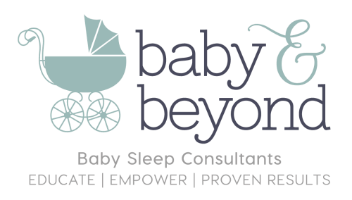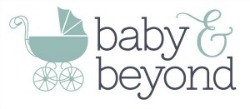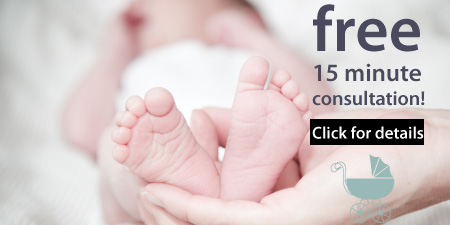What is the Fourth Trimester
The term ‘Fourth Trimester’ doesn’t seem to make a lot of sense as you are only pregnant for 3 trimesters. And of course, tri means three. But research has shown that the first three months after your baby is born should be treated as a fourth trimester. This is because of the enormous transition that your baby must make from being inside the womb, to exiting into the big wide world.
What is the Fourth Trimester?
Some research states that human babies could benefit from a further 3 months of gestation in the womb. However, this is not possible due to the large size of the human head. If babies remained in the womb for any longer, our bodies would not physically be capable of giving birth.
The first three months of your baby’s life are a massive learning curve. When human babies are born, they are completely unprepared for the outside world. While animal offspring can often walk a few short hours after birth, human babies are utterly reliant on their parents for everything. They also need to learn how to function in the big wide world.
Used to the warm, dark and familiar comfort of the womb, the outside world seems cold, bright, noisy and very big in comparison. While in the womb, your baby will never have experienced the feelings of hunger or thirst. These will be new cues to learn for both you and your baby.
What To Expect in the Fourth Trimester
Crying
Crying is the only way that your baby knows how to communicate. They will use crying let you know when something isn’t right. They might be hungry, in pain, or just lonely.
Before your baby is born, they will have been in constant contact with you and soothed by the rhythmic sound of your heartbeat. After birth, they will spend much of their time lying in their bed alone. This is a hard adjustment for them to make. Don’t be afraid to pick them up and cuddle them frequently. You can never give your newborn too many cuddles.
Feeding
Your newborn has a very small stomach, so it doesn’t take much to fill it. They will be hungry quite a lot and require frequent feeding through the day and night. You will probably need to feed them at least 8 times every day.
The wonderful thing about feeding time, is that it’s not just about the food. It is also the perfect time to bond with your baby. After you have your feeding routine established, you may consider introducing a bottle (of expressed breast milk or formula) so that Dad can take a turn at the feeding. This can give you a much needed rest, and allow Dad the time to bond with baby too.
Your baby will let you know when they are hungry by giving you cues. They might open their mouth, suck their fingers, or turn their head towards your breast to latch. This can be a bit of a shock for Dad if he is holding the baby with no shirt on!
Development
The Fourth Trimester is a rapid stage of development for your baby. They will learn to deal with the sensory overwhelm of the outside world. Having being used to a steady 37 degree temperature in the womb, they will also learn to regulate their own temperature to adjust to hot and cold.
Your baby will be born with the ability to taste and smell and they will be ready to develop these senses. Their vision will become clear and they will be able to identify individual sounds.
One of the biggest things they will need to practice, is how to be by themselves. They will be accustomed to the feeling of constantly being ‘held’ in the womb, so will still find it comforting to be held after birth.
Your baby will also begin to gain control over their limbs. They will consciously be able to wave their arms and legs, or direct their fist into their mouth.
Coping with the Fourth Trimester
There is a lot to learn when you are suddenly responsible for a brand new baby. Here are some tips to help you cope in the first 3 months.
Skin to Skin Contact
There is a reason that skin to skin contact is recommended immediately after birth. It stimulates blood flow in your baby, and it releases the happy hormone, oxytocin. This happy hormone is great for encouraging your milk to let down if you are breastfeeding. Your baby will be soothed by the warmth of your body and the familiar sound of your heartbeat. This can help regulate your baby’s own heartbeat.
Skin to skin contact remains an excellent way to calm your baby through the fourth trimester. You can pair this skin contact with a deep warm bath to help relax you and your baby.
Swaddling
Being snugly wrapped in a swaddle mimics the cosy feeling of being inside the womb. That is why it makes most babies feel more secure and calms them.
When swaddling, you must make sure you use the correct technique. Wrapping your baby’s legs too tightly can cause the soft hip joints to move out of line. This can lead to hip dysplasia.
Baby Wearing
Carrying your baby in a wrap, carrier or sling makes them feel like they are constantly being cuddled. Often babies who spend time being carried this way will cry less. Plus, it allows you to move around with two free hands. You will be able to go to the toilet, or prepare meals without needing to hold your baby in your arms.
Baby wearing is also an excellent way to get out of the house with your baby. You won’t need to worry about manoeuvring a large pram around shops, or in and out of the car. And you will never have the worry of needing to put your baby in a supermarket trolley!
Move Around
- During your pregnancy, your baby was constantly on the move with you. They get used to being rocked by your daily movements. Use this to your advantage when they need settling. Getting up and moving around with your baby might settle them easier than sitting still.
Feed on Demand
In these early weeks, your baby will be too young to have developed a feeding routine. Feeding on demand can be a great way to keep everyone happy and meet your baby’s needs. They will have some days that they are hungrier than others, so watching for your baby’s cues and feeding them when they are hungry will make for a relaxed Mum and a content baby.
Remember we are all Different
It is important to remember that every baby is different. What works for some families may not work for others. Your baby will have their own personality and needs to be met. They may not even behave the same as their older or younger siblings. Take the time to learn about each other and be in tune with your baby’s needs.
The fourth trimester is a fascinating time of growing and development, not only for your baby, but for the whole family. The contrast between the womb and the world is huge, and it will take your baby some time to learn the difference. Hopefully these tips will help you navigate the first three months a little easier.



